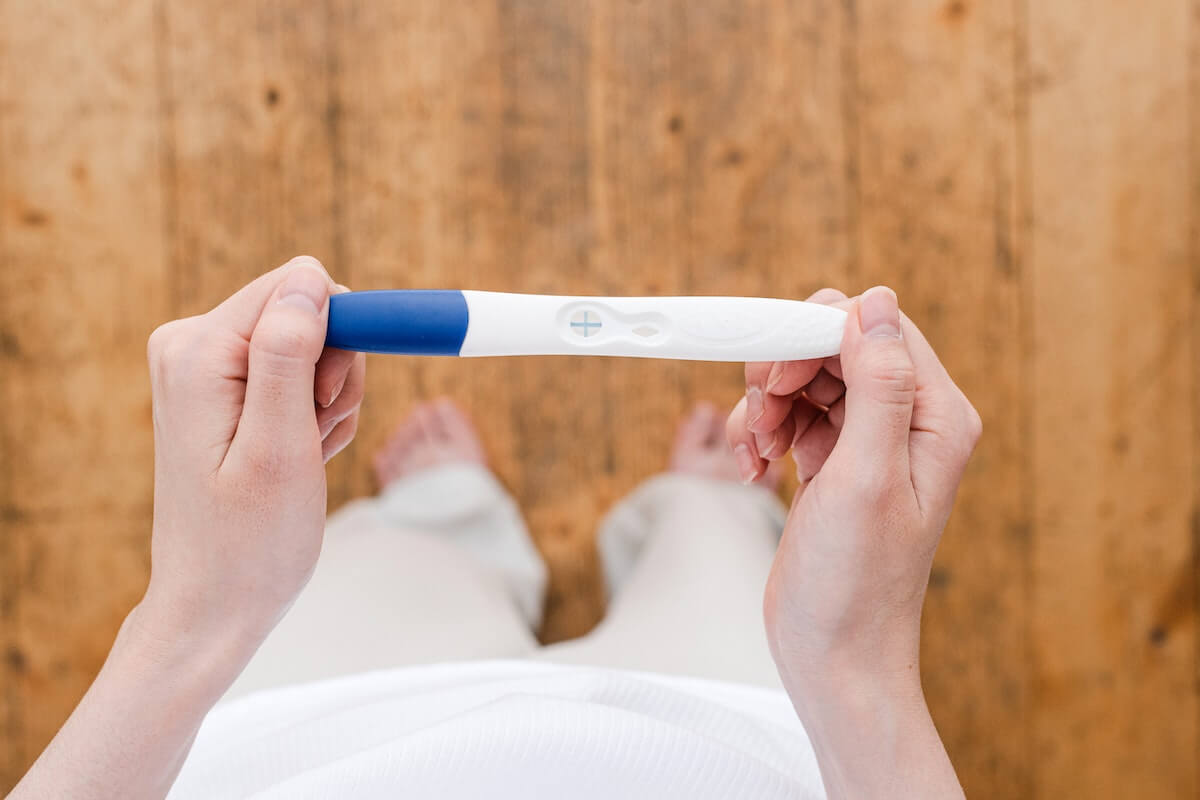Whether it’s out of excitement or concern, the question of how soon after unprotected sex one can test for pregnancy is quite common. By understanding the biology behind conception and the various types of pregnancy tests available, you’ll be better equipped to determine the optimal time for testing.
Understanding Pregnancy and Conception
To accurately estimate the best time for taking a pregnancy test, it’s essential to understand the process of conception and the role hormones play in pregnancy detection.
The Process of Conception
Conception occurs when a sperm fertilizes an egg, usually during the ovulation period. The fertilized egg then travels down the fallopian tube and implants itself into the uterus’ lining. This implantation process typically takes place 6 to 12 days after fertilization.
The Role of Hormones in Pregnancy Detection
The hormone human chorionic gonadotropin (hCG) plays a crucial role in pregnancy detection. Following implantation, the developing placenta releases hCG into the bloodstream. The concentration of hCG doubles approximately every 48 hours during early pregnancy, making it a reliable indicator for pregnancy tests.
Types of Pregnancy Tests
There are two primary types of pregnancy tests: home pregnancy tests (HPTs) and blood tests.
Home Pregnancy Tests (HPTs)
HPTs are affordable, easy to use, and readily available at drugstores. They detect hCG in urine, with some tests being more sensitive than others. Results can be obtained within minutes, making HPTs a popular choice for many women.
Blood Tests
Blood tests are administered by healthcare professionals and can detect pregnancy earlier than HPTs. They measure the exact concentration of hCG in the blood and can be classified into two categories: qualitative (confirming the presence of hCG) and quantitative (measuring hCG levels).
When to Take a Pregnancy Test
Several factors influence the ideal timing for a pregnancy test, including test sensitivity and the individual’s menstrual cycle.
Factors Affecting the Test Timing
The time it takes for implantation and the subsequent rise in hCG levels varies among individuals. Additionally, irregular menstrual cycles can make it challenging to pinpoint the exact time of ovulation and fertilization.
The Importance of Test Sensitivity
Different pregnancy tests have varying sensitivity levels, with some able to detect lower levels of hCG than others. More sensitive tests may provide accurate results earlier in the pregnancy.
How Early Can You Take a Pregnancy Test?
Accuracy of Early Pregnancy Tests
While some HPTs claim to detect pregnancy as early as five days before a missed period, it’s important to note that testing this early can result in false negatives. This is because hCG levels may not be high enough for the test to detect at this stage, even if conception has occurred.
False Positives and Negatives
False positives, though rare, can occur due to factors such as medications containing hCG or certain medical conditions. On the other hand, false negatives are more common, especially when testing is done too early. It’s crucial to follow the test instructions carefully and, if necessary, retest a few days later to ensure accurate results.
Best Time to Take a Pregnancy Test
Recommendations for Testing
The ideal time to take a pregnancy test varies depending on the individual and the type of test used. For the most accurate results, it is generally recommended to wait until the first day of a missed period before using an HPT. This allows sufficient time for hCG levels to rise, increasing the likelihood of a correct result. If you have an irregular cycle or are unsure when your period is due, waiting at least two weeks after unprotected sex is advisable.
Also Read: Home Remedies To Get Rid Of Hyper Pigmentation Naturally
For blood tests, you may be able to test as early as 7 to 12 days after conception, but it’s essential to consult a healthcare professional for personalized advice.
Conclusion
Determining the best time to test for pregnancy after unprotected sex depends on the type of test, test sensitivity, and individual factors like menstrual cycle regularity. While it may be tempting to test as soon as possible, waiting until the first day of a missed period or at least two weeks after unprotected sex is typically recommended for the most accurate results. Regardless of the outcome, it’s essential to consult a healthcare professional for guidance and support throughout the pregnancy journey.
FAQs
- Can I trust the results of an early pregnancy test? While early pregnancy tests can sometimes provide accurate results, it’s best to wait until the first day of a missed period or at least two weeks after unprotected sex for the most reliable outcome.
- What factors can cause a false positive or false negative result? False positives can result from medications containing hCG or certain medical conditions, while false negatives are often due to testing too early or not following test instructions correctly.
- Are blood tests more accurate than home pregnancy tests? Blood tests can detect pregnancy earlier than HPTs and provide more precise hCG level measurements, making them more accurate overall.
- How soon after a missed period should I take a pregnancy test? It’s recommended to take a pregnancy test on the first day of a missed period for the most accurate results.
- If I receive a negative result but still suspect I’m pregnant, what should I do? If you suspect you’re pregnant despite a negative test result, wait a few days and test again. If the result is still negative but your suspicion remains, consult a healthcare professional for further evaluation.








